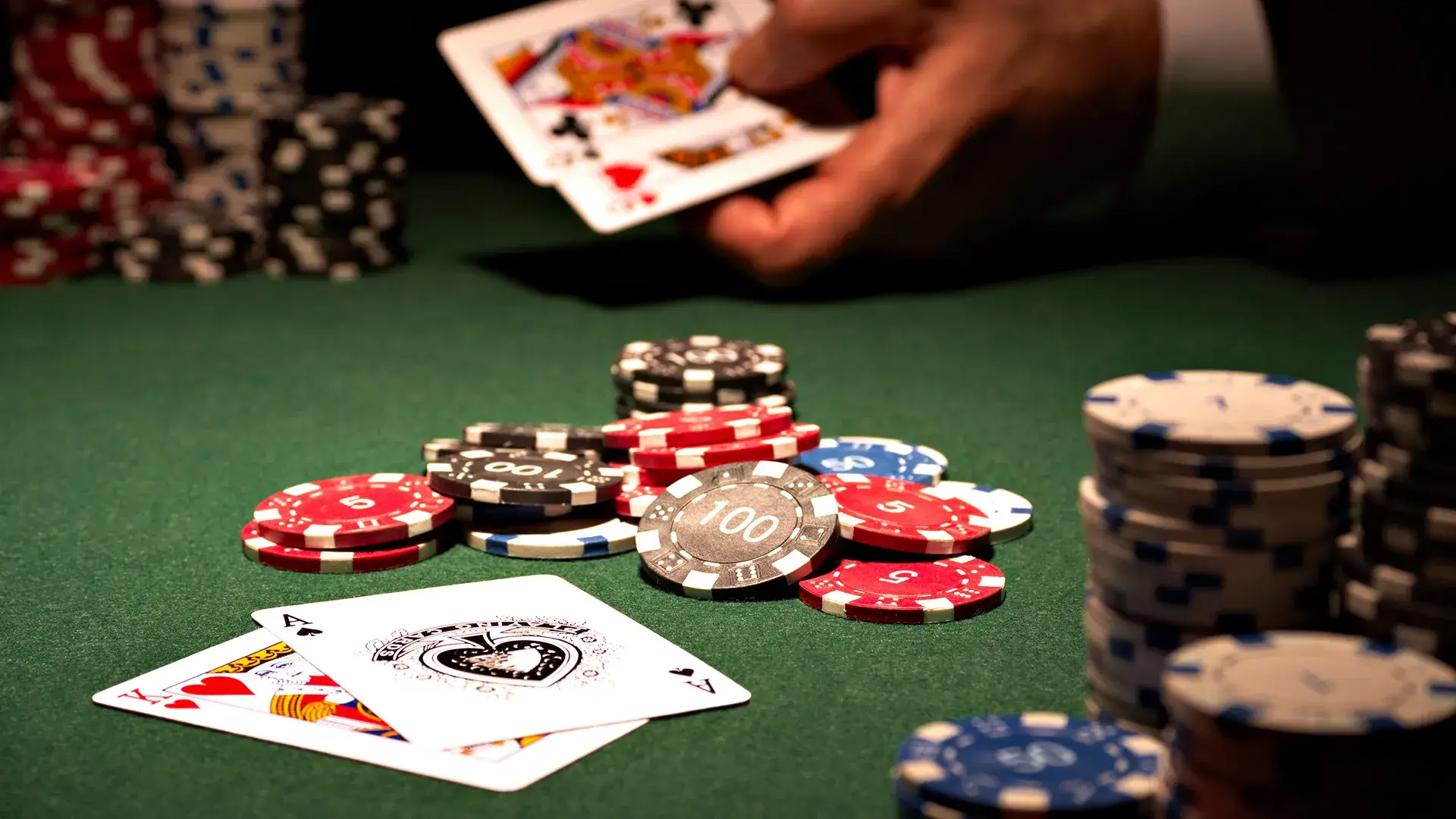A long, controlled gaming session is only possible when following one important principle: participating in games with the lowest casino advantage. The lower the operator’s mathematical expectation, the higher the chance of maintaining a balance, using strategies, and achieving stable winnings.
This article reveals the top directions suitable for prolonged participation while minimizing risks. The selection criteria were based on RTP data, betting structure, the impact of rules, and the applicability of a tactical approach.

Best Games with the Lowest Casino Advantage
To ensure a long session without sudden losses, consider the following best games for winning in a casino:
- poker — minimal influence of the platform, high skill ceiling, control through strategy;
- blackjack — proven mathematics, predictable RTP, minimal risks with optimal decisions;
- baccarat — banker bet with the lowest advantage, short cycles, absence of complex decisions;
- video poker — options like Jacks or Better with a full paytable offer up to 99.54% RTP;
- craps — bets on the Pass and Don’t Pass lines are among the most profitable, up to 98.6%;
- European roulette — a single zero variant, especially with the “La Partage” rule, allows reducing the house edge to 1.35%.
The options listed have a low advantage, simple rules, the ability to build a strategy, and moderate volatility. They are suitable for those seeking games with the lowest casino advantage and aiming to play strategically in the long run. Let’s take a closer look at the most popular options:
Poker: Player’s Control
Unlike most gambling disciplines, poker does not rely on the casino’s mechanical advantage, as participants compete against each other. The operator earns a commission — rake, but only skill influences the course of the game. This makes poker one of the few games with the lowest casino advantage, where the outcome depends on knowledge, mathematics, analysis, and psychology.
The choice of limits, format (cash, tournaments, Sit & Go), and discipline play a significant role. Statistics, range work, understanding the deck’s structure — all help keep the game under control. A well-chosen strategy over multiple hands reduces the impact of luck and ensures a growing win rate in the long run!
Blackjack: Calculated Chances
Applying basic strategy can increase blackjack’s RTP to 99.5%. The lowest advantage is achieved in games with a single deck and minimal additional rules favoring the establishment. Strict adherence to the move chart becomes crucial: when to hit, stand, split, or double down.
A player with basic math skills can achieve a stable return in the long run. Some use card counting, but this tactic loses effectiveness in the online format due to frequent shuffling. Nevertheless, blackjack remains one of the best games with the lowest casino advantage.
Baccarat: Minimal Risks with Banker Bet
When playing baccarat, it’s most advantageous to bet on the banker’s hand — the casino advantage does not exceed 1.06%. Betting on the player has a slightly higher advantage, while a tie bet is considered the least advisable due to excessive variance.
The main strength of baccarat lies in its simple rules, predictability, and fast pace. The game remains popular not only in its classic format but also in the online environment with live dealers. For those looking to play long sessions without sharp fluctuations, it’s an optimal choice.
Slots with High RTP: Are They Worth It?
Despite doubts about slots, some machines with fixed payouts offer players decent chances, especially when the RTP is 96% or higher. It’s essential to evaluate not only the return but also the volatility: machines with rare but large payouts are not suitable for long sessions, unlike low-volatility models with frequent results.
Free spins, bonuses, and active features (such as respins or story-based choices) can increase balance retention and enhance interest. However, even the best slots fall short compared to table games when the goal is a controlled session, and games with the lowest casino advantage provide the best conditions for that.
Reducing the Casino Advantage: Practical Steps
Knowledge of theory is useless without practical application. There are several tools that participants can use to influence the course of play and reduce the casino’s mathematical advantage. For those looking to increase their chances and extend their gaming session, the following solutions are suitable:
- applying basic strategy in blackjack and video poker;
- betting only on favorable positions (e.g., banker in baccarat or pass in craps);
- choosing single zero options and outside bets when playing roulette;
- analyzing rules before starting — not all versions are equally advantageous;
- using bonuses and promos to offset losses;
- avoiding progressive jackpots, which increase volatility and reduce RTP.
Implementing these approaches allows participants to actively influence the process and structure the game where luck does not dominate. The choice of platform is particularly important — an online casino with a license, transparent RTP, and fair betting system provides a solid foundation.
The Value of Statistics and Understanding Rules
An intuition-based gambling session quickly turns chaotic. To benefit from games with the lowest casino advantage, analyzing statistics, understanding odds, correctly interpreting payout tables, and interpreting dealer behavior are crucial in many formats, including backgammon, roulette, and video poker.
Thoughtful behavior, adherence to calculations, rejection of pure intuition, and regular review of played sessions form the foundation for stable winnings. This is how those who play for results, not just luck, operate.

Conclusion
Understanding which games offer easier wins is the first step in minimizing risks in a casino. Among the myriad of options, only a few formats provide a chance for a long session with minimal losses. These include poker, baccarat, blackjack, video poker, craps, and European roulette. They constitute the category of games with the lowest casino advantage, where the outcome depends on the player’s actions, not just the random number generator.
Smart bankroll management, format selection, rule compliance, and mathematical knowledge transform gambling into a controlled model with clear boundaries. In such conditions, the game becomes not only entertainment but also a way to leverage intellectual advantage. In the long run, only such a model can maintain balance and pave the way for stable winnings!
 en
en  de
de  ar
ar  es
es  hi
hi  fr
fr  nl
nl  it
it  pt
pt  el
el 









